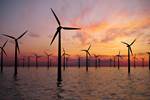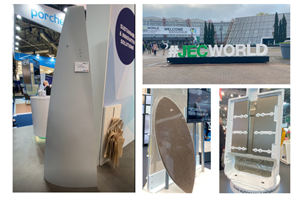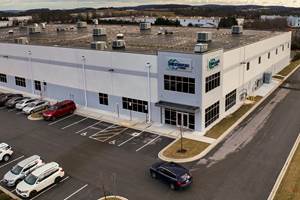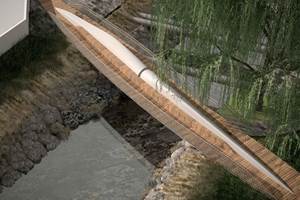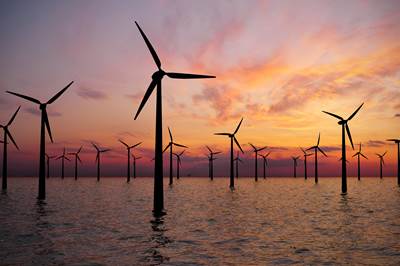Iberdrola plans first industrial-scale floating offshore wind farm in Spain
The 2,000-MW project is part of the 150 initiatives presented for Spanish industrial and employment transformation. Could generate 2,800+ jobs/year, involve 52 Spanish SMEs, with €1 billion investment.
Share
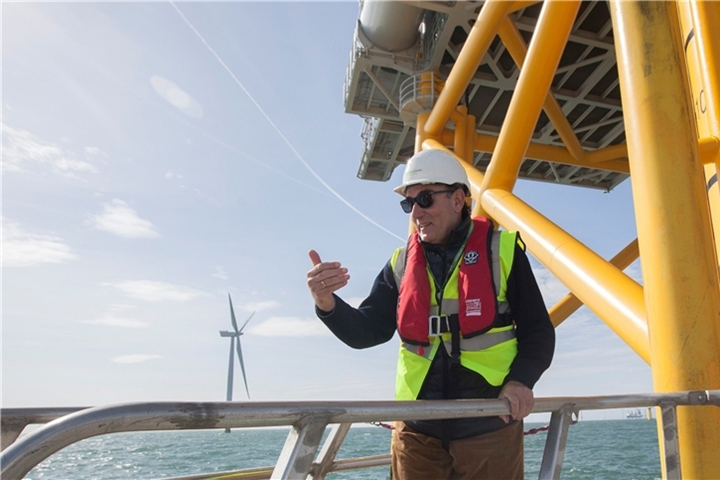
Iberdrola President Ignacio Galán visiting an offshore wind farm. All photo credit: Iberdrola
Iberdrola (Bilbao, Spain), a global energy leader, is planning what is said will be the first industrial scale floating offshore wind farm in Spain, to which it would allocate more than €1 billion of investment to commission 300 megawatts (MW) of clean energy off the Spanish coast. The project represents an opportunity to develop the country's supply chain and establish Spanish industry as an international benchmark. It has been submitted to the Next Generation EU (NGEU) program and is aligned with the pillars of the Spanish government's Recovery, Transformation and Resilience Plan.
According to Iberdrola, the renewable facility will become a hub for the country’s industrial transformation and job creation. The study, design and engineering, which could begin as early as this year, could potentially generate more than 2,800 jobs per year until it becomes operational in 2026. Iberdrola says the project, if accepted by the NGEU, would require the participation of 66 Spanish companies and technology centers, including 52 small and medium-sized enterprises (SMEs). In the short term, the initiative could generate between 1,000 and 2,000 jobs during 2021-2022, before the start of the construction phase. In the long term, the project could save 202,500 tonnes of carbon emissions per year.

Iberdrola's fixed offshore wind power platform projects.
Iberdrola’s pioneering project plans to spearhead the development of up to 2,000 MW of floating offshore wind projects identified by the company off the coasts of Galicia, Andalusia and the Canary Islands.
The project is one of 150 initiatives submitted by the company to the NGEU program — in the fields of heat electrification, floating offshore wind, sustainable mobility, green hydrogen, innovative renewables, smart grids, circular economy and energy storage — that would mobilize investments of €21 billion and involve hundreds of SMEs.
In all, these 150 initiatives have the potential to generate 45,000 jobs/year, generate economic growth of more than 1.5% of GDP, improve competitiveness and the balance of payment — between €500 and €1 billion per year — and contribute to the demographic challenge, as they include more than €7 billion in rural areas.
In addition, Iberdrola is deploying an investment plan of €14.3 billion by 2025 in Spain, as part of a growth strategy that will lead it to invest €75 billion worldwide.
Related Content
JEC World 2023 highlights: Recyclable resins, renewable energy solutions, award-winning automotive
CW technical editor Hannah Mason recaps some of the technology on display at JEC World, including natural, bio-based or recyclable materials solutions, innovative automotive and renewable energy components and more.
Read MoreHexagon Purus opens new U.S. facility to manufacture composite hydrogen tanks
CW attends the opening of Westminster, Maryland, site and shares the company’s history, vision and leading role in H2 storage systems.
Read MoreAchieving composites innovation through collaboration
Stephen Heinz, vice president of R&I for Syensqo delivered an inspirational keynote at SAMPE 2024, highlighting the significant role of composite materials in emerging technologies and encouraging broader collaboration within the manufacturing community.
Read MoreRecycling end-of-life composite parts: New methods, markets
From infrastructure solutions to consumer products, Polish recycler Anmet and Netherlands-based researchers are developing new methods for repurposing wind turbine blades and other composite parts.
Read MoreRead Next
Greenalia initiates four floating wind farm projects for Spain
The four independent wind farms are expected to meet the Canary Islands’ goals to develop 310 MW of offshore wind as set out in its 2015-2025 Strategic Energy Plan.
Read MorePlant tour: Daher Shap’in TechCenter and composites production plant, Saint-Aignan-de-Grandlieu, France
Co-located R&D and production advance OOA thermosets, thermoplastics, welding, recycling and digital technologies for faster processing and certification of lighter, more sustainable composites.
Read MoreAll-recycled, needle-punched nonwoven CFRP slashes carbon footprint of Formula 2 seat
Dallara and Tenowo collaborate to produce a race-ready Formula 2 seat using recycled carbon fiber, reducing CO2 emissions by 97.5% compared to virgin materials.
Read More

